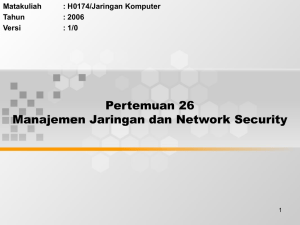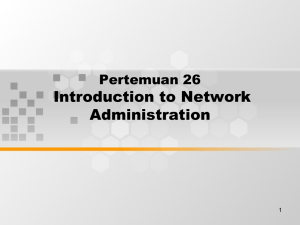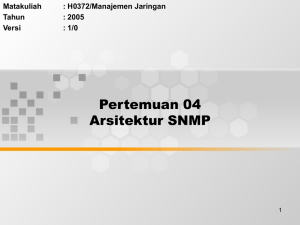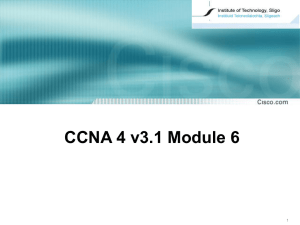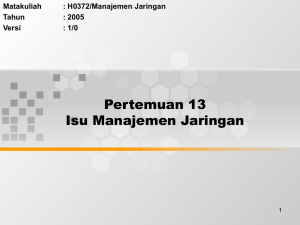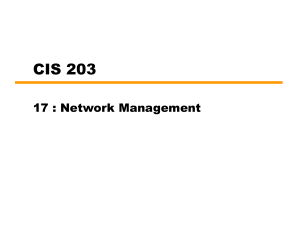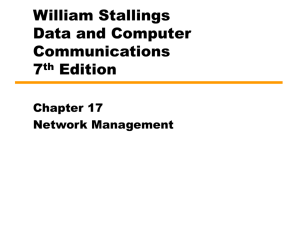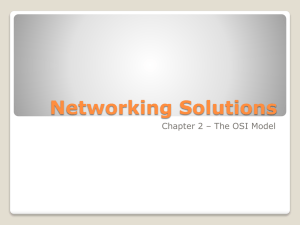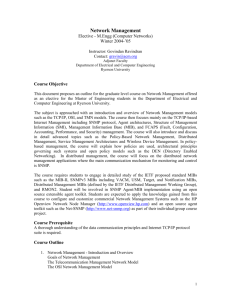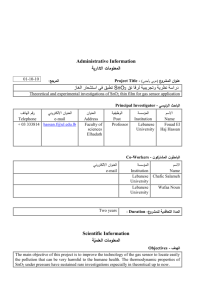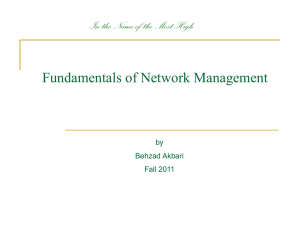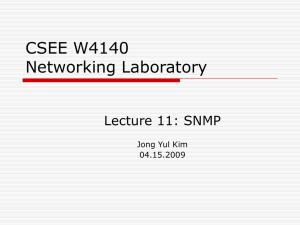Network Management: Tools, SNMP, and Architectures
advertisement
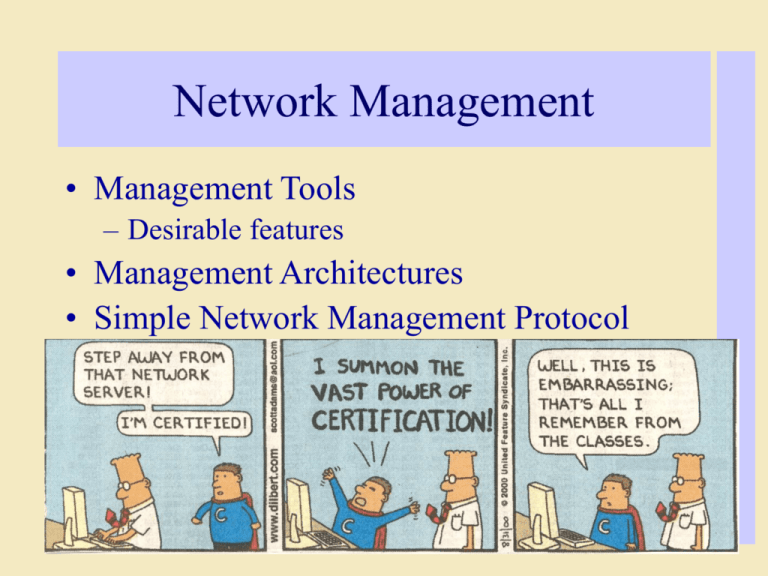
Network Management • Management Tools – Desirable features • Management Architectures • Simple Network Management Protocol Think your PC is expensive? • Typical PC cost: • Typical cost to manage that PC: • Total: 84 % of costs stem from management * http://www.3com.com/news/releases/pr00/sep1800a.html $1,500 $7,700* $9,200 Team-work • Brainstorm: What are the major problems for Network Managers? • Teams: Find solutions! Key Network Management Functions • • • • • • Configuration management Performance management System tuning and capacity planning Fault management Security Accounting management Tasks for Network Managers • Plan, organize, direct, control, staff the voice/data network operation • Manage operations and provide support • Ensure reliability • Manage LANs and connections to backbone • Keep abreast of technological developments • Manage the communications budget • Evaluate and acquire communications hardware, software, and services Hardware Tools for network management • Cable testers • Error rate testers • Protocol analyzers • Response time monitors • Self-testing devices. Software Tools for network management • Inventory tracking – Numara Track-it • License metering • Software distribution • Trouble ticketing • Simulation modeling • Workload generators • Network utilization overviews Network Management Standards • OSI Model /CMIP • • • • • • • International standard (ISO/OSI) Management of data communications networks – LAN and WAN Deals with all seven layers Most complete model Object-oriented Well structured and layers Consumes large resource in implementation • • • • International standard (ITU-T) Management of telecommunications network Based on OSI network management framework Addresses both network and administrative aspects of management • • • • IEEE standards adopted internationally Addresses management of LANs and MANs Adopts OSI standards significantly Deals with first two layers of the OSI Reference Model • Internet Model/SNMP • TMN • IEEE LAN/WAN • Web-based Management • Uses Web server/Web browser architecture • Java Management Extensions (JMX) Simple Network Management Protocol (SNMP) What is it? A Protocol that Facilitates the exchange of management information between network devices. Why was it developed? To control and monitor status of network devices How is it beneficial? Enables network administrators to: Manage network performance Find and solve network problems Plan for network growth SNMP Basic Components • Network Management station – Collects and stores management information, and makes this information available to NMS using SNMP – Could be a work station or PC • Network Management System (NMS) – Executes applications that monitor and control managed devices • Agent – A network-management software module that resides in a managed device • Management Information Base (MIB) – Used by both the manager and the agent to store and exchange management information NMS Management Station User Interface Network Management Application Network Management Architecture SNMP AGENT AGENT AGENT MIB MIB MIB Managed Devices Router Host Printer How SNMP Works Get-next-request Set-request Get-request Get-response traps Network Management Station MIB SNMP Agent Get-request: Request value of variable. Get-next-request: Request the value of next variable (like a table). Set-request: update one or more variables (for reconfiguration). Get-response: agents sends a reply to manager. Traps: agent notifies manager about an abnormal situation. With a Network Management System, you can monitor a large network from a central console. Remote Monitor (RMON) • • • A tool to analyzes performance, and monitor information that is gathered and locally analyzed that can then be transmitted to remote network segment(s). Works on a standalone and distributed agent modes. RMON Gathers and feeds information to a network management system. Client Ethernet LAN Segment Network Management Station Workstation Router WAN RMON Architecture Ethernet LAN Segment Workstation Router RMON Client RMON features • • • • • • • • • Monitor station frame counts, byte counts and percentage of traffic generated Assign user names to network addresses Show network utilization (GUI interface) Identify stations with errors Set network alarms, station alarms Log network alarm activity to file or printer Comprehensive traffic statistics screen Test the attached cable Generate various hardcopy reports. Summary • Network management is becoming increasingly important with the advent of larger networks • Network management costs are high • Automated tools can lower management cost. • Vendors finally paying belated attention to it. • Standards such as SNMP and SNMPv2 are now emerging and are being adopted widely. A dose of reality “Raise your hand if you believe that management standards are going to help you manage your network. Anyone? That's what we thought” “If airline seating operated the way most networks do, those passengers first in line would sit in first class“ Source: http://www.networkcomputing.com/1117/1117f3.html?ls=NCJS_1117rt
